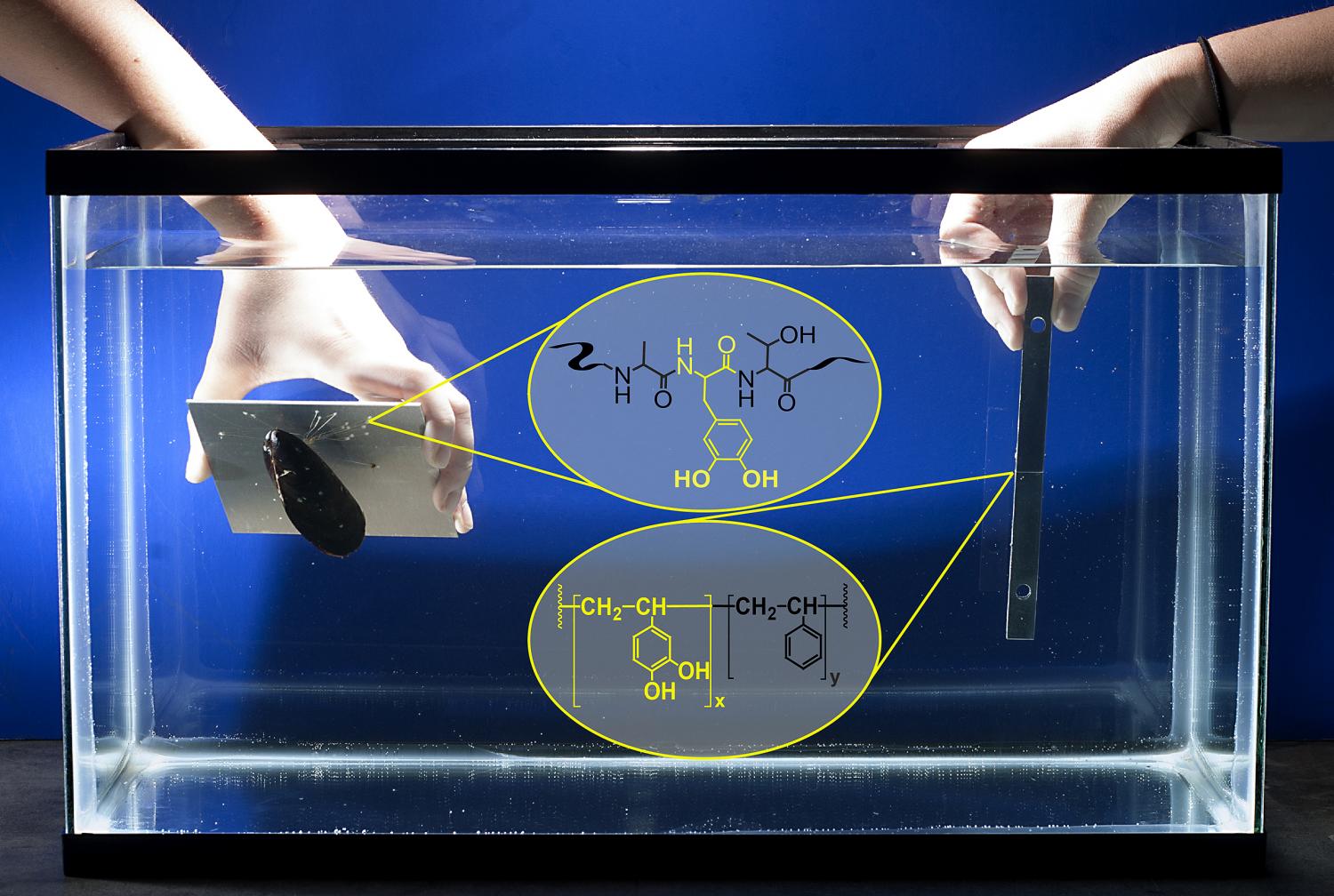We all know that shellfish produces substances so that they can get attached to the surfaces. With the inspiration from the same, a group of researchers has designed a strong adhesive that can function underwater.

Jonathan Wilker said, “Mussels, oysters, and barnacles stick to the rocks with evident ease. With the intention of developing a new substance capable of binding within harsh surroundings, we produced a biomimetic polymer that is modeled after the mussels’ adhesive proteins.” Mussels expand hair-like fibers that affix to surfaces with the use of adhesive plaques. Proteins in the glue consist of DOPA, an amino acid, which harbors the chemistry required to give adhesion and strength.
Researchers incorporated this chemistry of proteins of mussels into a biomimetic polymer known as poly(catechol-styrene), producing an adhesive by exploiting the chemistry of substances known as catechols that are enclosed in DOPA.
Although a majority of adhesives interrelate with water rather than attaching to surfaces, the researchers believe that the catechol groups can have a specific method for going down via the surface waters so as to attach onto surfaces. Wilker further said, “These observations are assisting to exploit which characteristics of mussel adhesion are most significant when controlling attachment within their salty and wet surroundings. All that is required for utmost strength bonding beneath the water is a catechol-containing polymer.”
In their study, the performance of this bio-based glue was observed to be superior to the available 10 commercial adhesives when utilized to attach polished aluminium. In comparison to the 5 well-known commercial types of glue involved in the trial, this new adhesive functioned better when attaching Teflon, wood, and polished aluminium.
The study also illustrated that the new adhesive was found to be 17 times tougher when compared to the natural adhesives generated by the mussels.
This is surely an amazing invention, isn’t it?